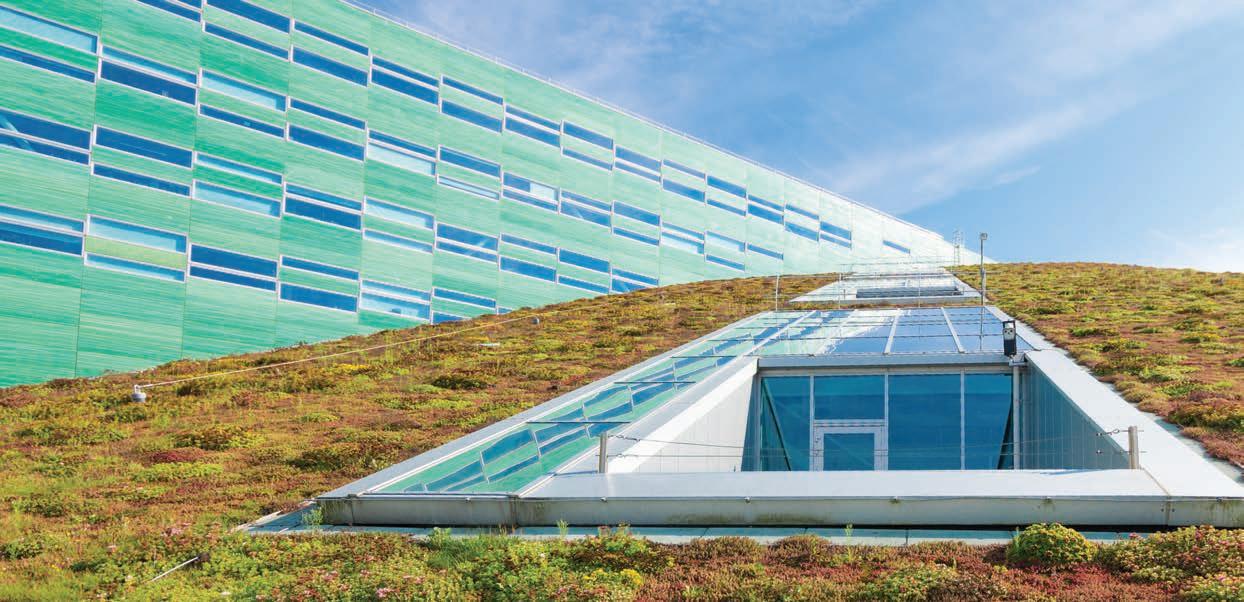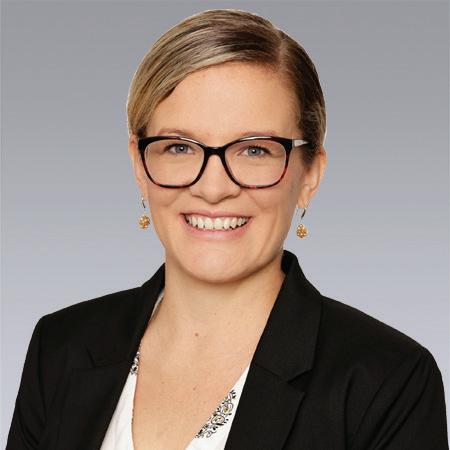
6 minute read
Colliers’ integrated sustainability
from MHD October 2021
by Prime Group
COLLIERS’ INTEGRATED SUSTAINABILITY STRATEGY
Two of Colliers’ top experts – one in sustainability, the other in industrial real estate – discuss the company’s integrated sustainability strategy, as well as the challenges, opportunities, and solutions for sustainability in industrial property.
According to Lisa Hinde, Head of Sustainability at Colliers for Real Estate Management Services Australia, Colliers has embarked on a course of reconfiguring its overall Environmental, Social, Governance (ESG) practices to put it ahead of the curve in responding to emerging challenges in the sustainability space – broadly construed – and to amplify its already wellestablished reputation for integrity as well as excellence in real estate generally and industrial real estate specifically.
“This year Colliers followed up the publication of its Global Impact Report with the appointment of a dedicated Global ESG lead, and the formalisation of an Asia Pacific ESG Committee, led by our APAC Chief Financial Officer,” Lisa says. “In terms of Colliers’ executive level buy in, it’s a tremendous commitment made by the organisation. To enrol not just the CFO, but also the APAC Chief Operating Officer, Regional Director | People and Performance, and General Counsel & Company Secretary in that committee – it really demonstrates our commitment to lead from the top and have our key decision makers focusing strategically on these issues.”
The purpose of the committee, she says, is to gather information from Colliers’ various departments across countries in the APAC region, filter such insights and data back into the company’s overall strategy – for application in its internal operations – and better serve clients on ESG issues.
“There are endless opportunities in applying sustainability principles within our business,” Lisa says. “Whether it’s energy efficiency, investor reporting, or green rating schemes – our role is to monitor these trends and ensure we are seamlessly integrating these initiatives as a market leader. From a social perspective, we are focused on how to more effectively build health and well-being into the picture for everyone who works for or with Colliers. On the scale we’re looking to embed these principles, it can be challenging to determine which activity to prioritise – you can do the best in terms of environmental metrics, but there’s a risk the people element can get left behind in that process. As for governance, obviously one of the standout concerns is how best to manage data and ensure data security, so that we’re serving our clients responsibly.”
Lisa says that the formation of the APAC ESG Committee, and the renewal of Colliers’ overall sustainability strategy – an “integrated strategy” – is part of an exciting series of new developments emerging from Colliers.
ESG REPORTING & METRICS
Daniel Shafferman, National Director, Industrial Real Estate Management Services at Colliers, says that the move to greater focus on ESG is a natural evolution for Colliers. “As Colliers has continuously grown over the years, its core property management role has expanded to
Colliers is doubling down on its commitment to sustainability, with the formation of an Asia Pacific ESG Committee.

meet the changing demands of the industrial property market,” he says.
“Although we are dealing with Australian properties, it’s important to note that the financial backing often comes from overseas,” Daniel says. “So, it’s paramount that we stay on top of global ESG expectations to deliver the most all-encompassing Property Management offering. If we can help our local asset managers provide the necessary reporting and metrics through automated processes we essentially gain both our clients and ourselves more time and energy to direct at tenant retention or future planning for the asset.”
Of particular significance in this connection is the Global Real Estate Sustainability Benchmark (GRESB), a reporting tool that provides a measurement scale for ESG allowing firms to target areas of improvement, and compare different portfolios and assets on a standardised scale It is viewed as the ESG survey of choice for investors.
Daniel says that because Colliers has such a depth of experience in managing portfolios nationally – especially some of the largest Industrial portfolios under external management – investment groups now come to Colliers to get targeted practical advice on how to ensure their properties are in keeping with key sustainability metrics.
“The considerations we’re talking about to meet GRESB reporting requirements aren’t that complex, but it’s a matter of ensuring buildings have the hardware to supply essential ESG data – and that that data is communicated and managed effectively,” he says. “Everyone has been aware of the importance of sustainability, health and well-being for a long time, but it has been a balancing act between financial outcomes and how much was truly committed to ESG – that focus has now shifted and they are of equal importance in most of our clients’ strategies moving forward.
“For example, one essential component of GRESB reporting is around energy usage. Existing industrial assets may not have meters capable of reporting the data that is required to monitor energy usage. At what point do you retrofit something that will allow this to be monitored, if your tenant will allow it? If you are building a new product, are you installing the right metering to allow you to track this data moving forward? Is your lease written so that you can collect additional information from the tenant so that you can include them in targeted sustainability improvements?”
Daniel points to other major sustainability considerations within the ESG context, including asset recycling, changing geographies and locational highest and best use, waste management, climate change emissions metrics, and data management. The myriad considerations that come under the rubric of “ESG” are constantly adapting and expanding. Colliers, in turn, is upskilling existing teams and onboarding experts to manage this new expectation of what a traditional industrial real estate management team service encompasses.
ENTER MEASURABL
Lisa says that there is growing competition between funds to perform well in a “sustainability Olympics”, because every fund is trying to improve on each other in ESG stakes in the race to accessing capital.
To ensure that clients are staying on top of this competition, Colliers recently launched a global partnership with Measurabl, a widely adopted ESG data management solution for commercial real estate. Measurabl helps manage, disclose and act on environmental, social and governance (ESG) data – and ultimately support investors to achieve sustainability goals in partnership with their real estate management teams.
“Measurabl’s platform collects and syncs data for each asset under our management,” Lisa explains. “What that means is that, once we sync directly with a utility, we load up our Colliersbased policies, our clients’ policies, any information that they’re looking to report on for certain metrics – Carbon Disclosure Project (CDP) reporting, for instance – and it is automatically available for clients to review. It also syncs into those reporting frameworks.”
Colliers’ implementation of Measurabl worldwide underwent a pilot phase, and formally launched in September.
“A strong testing and piloting phase is essential when you’re, in effect, trying to onboard a global footprint of assets under management,” Lisa says. “But in addition to ensuring a seamless and safe transition, it gives us an opportunity to tailor its usage to different geographies and asset classes. We’re Australianising the tool by working with local utility providers, and approaching other partners such as the Green Building Council of Australia and NABERS.
“It’s a really amazing tool – and once it’s localised for the Australian market, I know it’s something our clients will really respond well to.” ■

Daniel Shafferman, National Director, Industrial Real Estate Management Services at Colliers.











